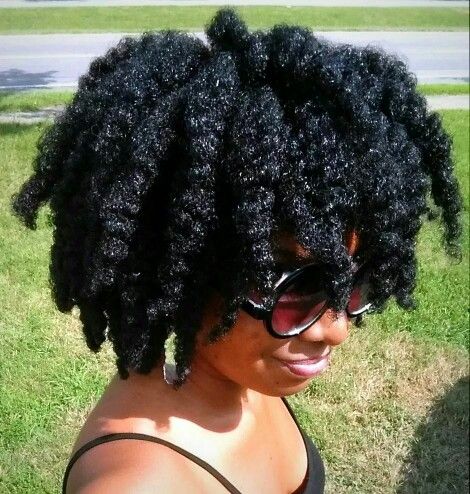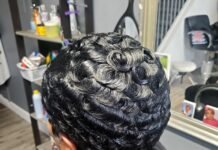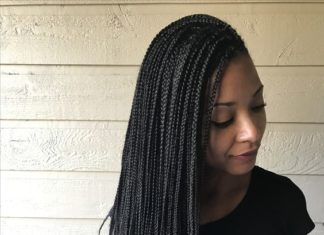Natural Hair LOC Method: Everything You Need To Know
The LOC method is a popular technique used to moisturize natural hair. LOC stands for Liquid, Oil, Cream, and the order of the initials refers to the order in which each ingredient should be applied to your hair. The purpose of the LOC method is to apply moisture to your hair and retain that moisture for as long as possible. Many women with natural hair find that the LOC method works well for them; this technique is popular among ladies with relaxed hair as well. Of course, there is no one-size-fits-all method that works for everyone, but with the right line-up of products, the LOC method may be right for you.
1The Purpose Of The LOC Method Natural Hair
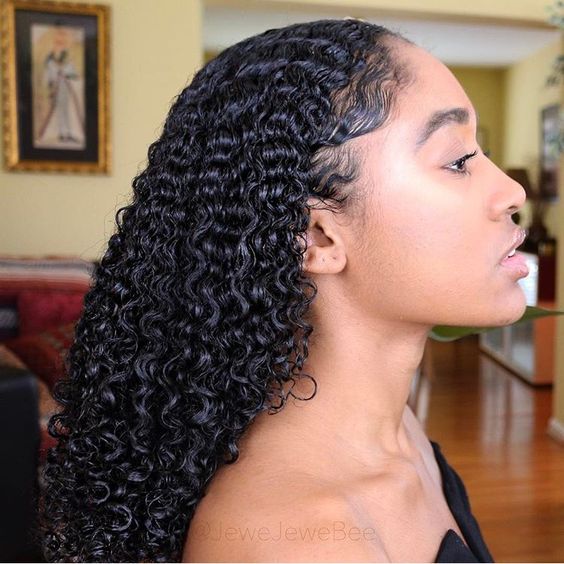
Our scalps produce an oil known as sebum. If your hair is naturally straight, the sebum has a direct path to travel from roots to ends. This is why straight hair has a tendency to get oily after a while. Naturally curly/kinky hair, on the other hand, is prone to dryness because all the twists and turns in each strand prevent the oils from traveling down the entire length of the hair shaft. This is where the LOC method comes in.
2Loc Method – Step 1: Liquid
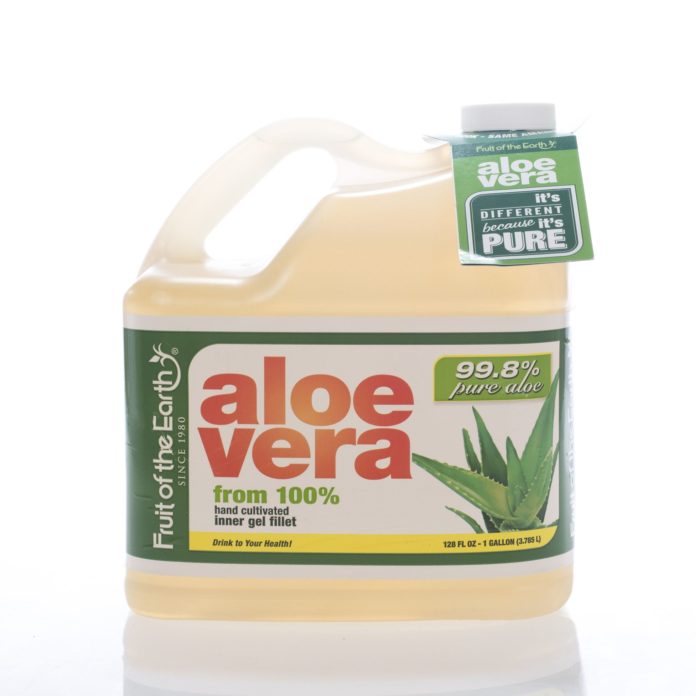
The first step of the LOC method involves applying a liquid-based product to your hair. Water or a leave-in conditioner is the most common ingredient used for this step. Water is mother nature’s moisturizer, so for some, it’s all they need for this step. Others prefer aloe vera juice or a water-based leave-in conditioner.
3Loc Method – Step 2: Oil

When it comes to the second step of the LOC method, less is more. After step one, apply a small amount of oil to your hair. The oil is meant to form a barrier over your strands, to help keep the moisture you just applied inside. You may have to experiment to see which oil you like best, but some popular choices are jojoba oil, sweet almond oil, and olive oil. Since you’ll be layering on multiple products, it’s usually best to stick to lighter oils.
4Loc Method – Step 3: Cream
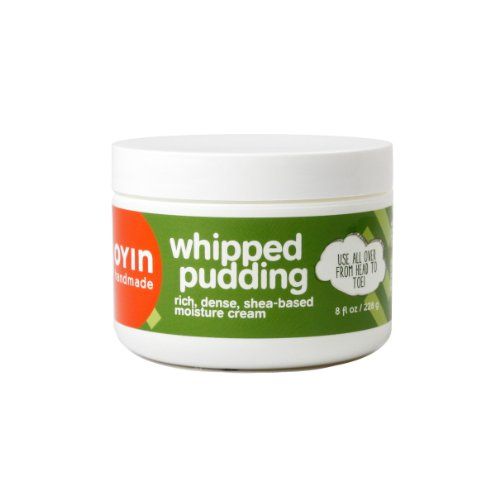
There’s a lot of debate about which product is the best choice for step three of the LOC method. Some ladies like to use a styling cream, others use a butter like shea butter or mango butter, and some prefer a thick, creamy leave-in conditioner. The cream is meant to further lock moisture into your hair.
5When’s The Best Time To Do The LOC Method?
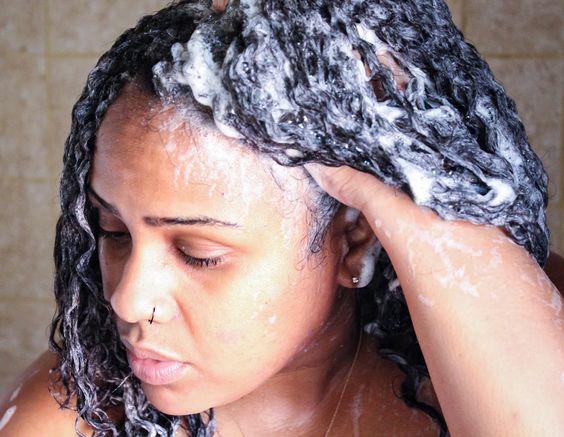
While it’s totally possible to use the LOC method in between shampoos, the best time to do it is generally right after you wash and condition your hair, while your hair is still damp. Think of your hair as a sponge: there’s only so much moisture/product your hair can absorb. After a while, products will just start to sit on top of your hair until you wash it all out and start fresh. Also, if the LOC method truly does seal the moisture into your hair, it will be difficult to introduce new moisture into your hair after a while, since the oil/cream serves a barrier, preventing moisture from getting out (and in).
6Possible Products #1 For LOC Method: Liquid
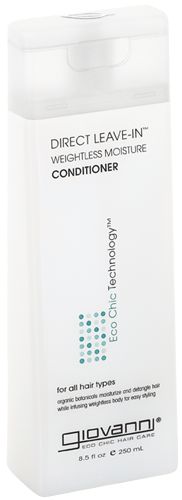
As previously mentioned, you can use water as your liquid for the first step in this process. Aloe vera juice also works well and has hydrating properties. Go for a water-based leave-in conditioner if you prefer not to use water or aloe vera juice. Make sure that water is listed as the first ingredient. You can use a spray on leave-in conditioner that comes in liquid form, such as Jane Carter’s Revitalizing Leave-In Conditioner, or a light, creamy leave-in conditioner like Giovanni Direct Leave-In or Kinky Curly Knot Today.
7Possible Products #2 For LOC Method: Oil
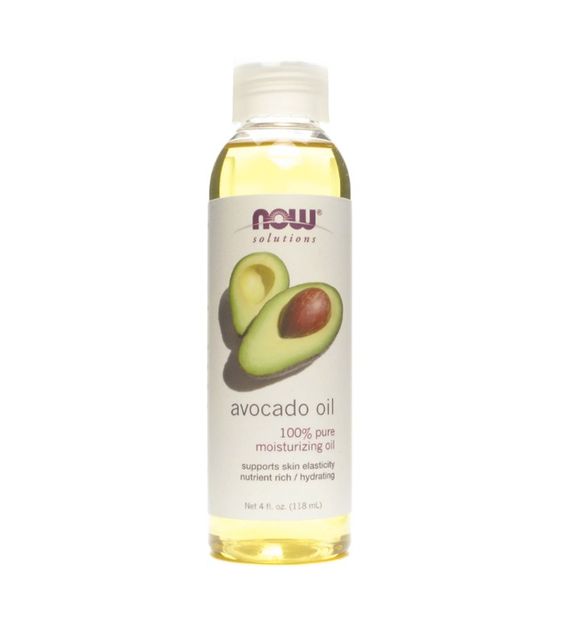
There are a variety of oils to choose from for Step 2 of the LOC method. Whenever possible, try to avoid cheap “oil blends” that contain fillers and artificial ingredients and opt for natural, pure oils. Olive oil and coconut oil are popular choices, as are jojoba oil, argan oil, grapeseed oil, and avocado oil. Castor oil is another great oil, but it is very thick and can leave your hair feeling sticky if you use too much, so keep that in mind.
8Possible Products #3 For LOC Method: Cream
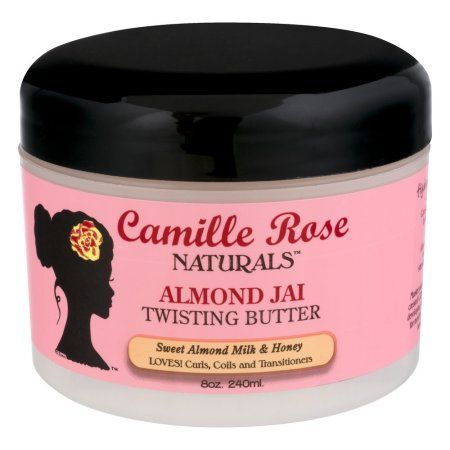
Again, this is probably the most debated step in the process, so you will likely hear several different product recommendations, depending on who you ask. Some good products for Step 3 include Shea Moisture’s Curl Enhancing Smoothie, Camille Rose Naturals Almond Jai Twisting Butter, Oyin Handmade Whipped Pudding, and Eden BodyWorks Curl Defining Creme. As previously mentioned, you can also use a natural butter such as shea butter or mango butter for this step.
9Benefits Of The LOC Method For Natural Hair
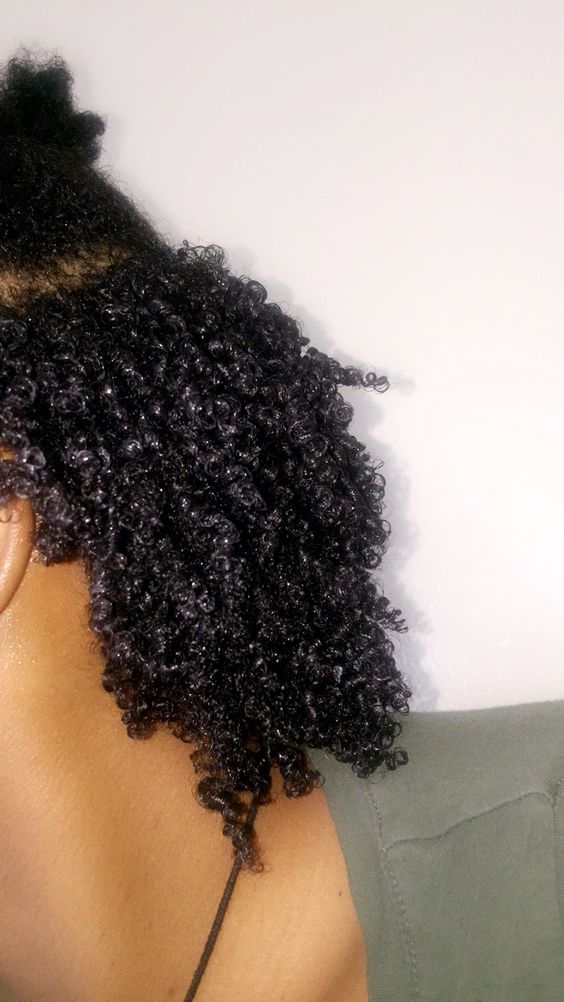
The biggest benefit of the LOC method is moisture retention. Dry hair is more susceptible to breakage than moisturized hair. Many people find that their hair feels more moisturized when they use the LOC method; keeping your hair moisturized is a key part of a healthy hair care routine. Additionally, when you don’t have to moisturize your hair every day, it’s possible to extend the longevity of your styles without having to do them over, which can also help avoid excess manipulation which can lead to breakage.
10Downsides Of The LOC Method For Natural hair
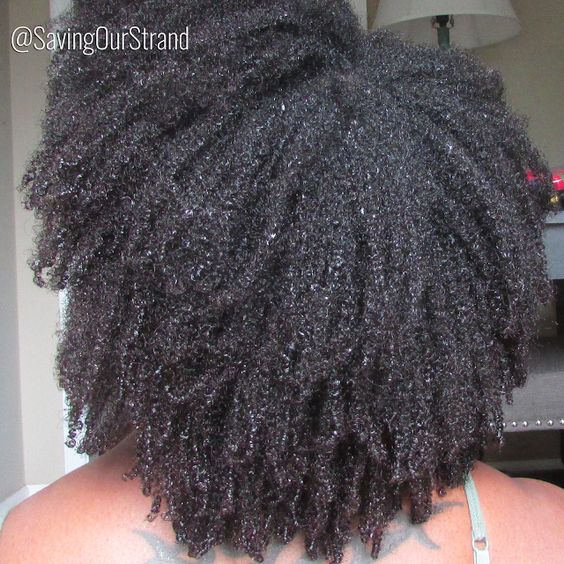
As popular as it is, the LOC method still has its critics. Some people believe that moisture is sealed into the hair during the conditioning process, making the LOC method unnecessary. There is also a lot of debate about whether oils actually seal moisture into the hair. Others question the need to use a cream if, in fact, an oil has already sealed in moisture. And then there are others who warn that layering too many products onto your hair can lead to excessive product build-up. They are all fair criticisms, but you have to keep in mind that no two heads of hair are exactly alike. Different things work for different people, and the only way to truly know if something works for you or not is to try it yourself.
11The Loc Method – Overkill?
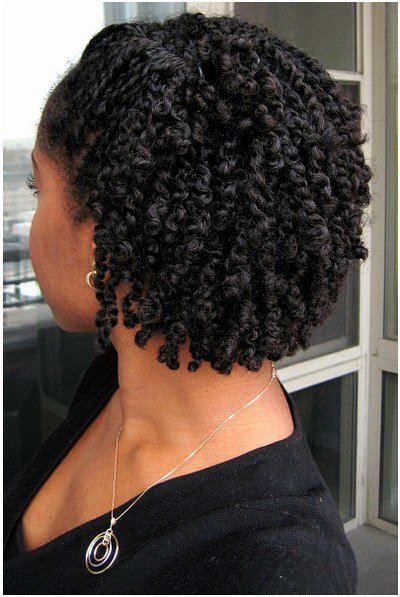
You might be wondering if the LOC method is too redundant and/or a waste of product. After all, depending on what products you use, your leave-in could already contain oils or your cream could contain water and other moisturizing ingredients. These are definitely factors to keep in mind. In general, when you’re applying products to your hair it’s always a good idea to do so with a light hand. You may only really need a few drops of oil per section: focus on your ends, as they are the oldest and most vulnerable part of your hair. The same goes for your cream. You’ve already applied a moisturizer and an oil, so you don’t need to overdo it during step 3. Keep track of how your hair reacts to this process and omit, reverse, or substitute any steps as you see fit.
12Modifying The LOC Method
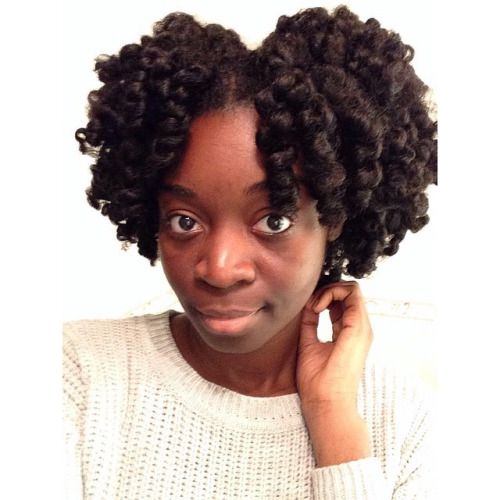
One way to modify the LOC method is to reverse steps two and three; this is commonly known as the LCO method. This gives your hair the opportunity to absorb as much moisture as possible from your liquid/leave-in and your cream (if your cream happens to contain water). Think of the oil as the icing on the cake. There is also the LOG method, in which a styling gel takes the place of a cream. You might find this method helpful for styles that require a lot of hold, like a wash n go. Other variations include LO (omitting the cream step) and LC (omitting the oil). The LC method may work well for you if you use a thick butter like shea butter or mango butter. However you choose to modify the process, the general consensus is that liquid should always be the first step.
13Loc Method Tips
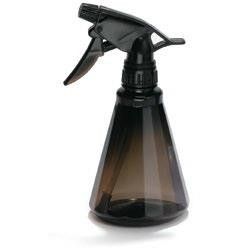
A good way to keep track of how well the LOC method works for you is to keep a hair journal. Each time you wash and style your hair and/or use the LOC method, list all products used and the order in which you used them, then keep a record of how well your hair retained moisture, how it felt during the week, whether or not you experienced product build-up, etc. It’s also a good idea to apply the products in sections to ensure even distribution. Keep a spray bottle of water handy in case your hair starts to dry during the process.
14The Take-Away On Loc Method
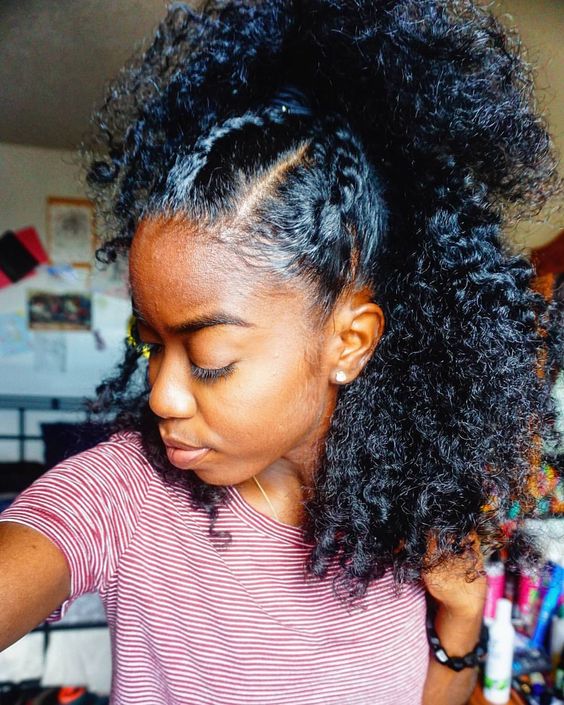
The LOC method is not a one-size-fits-all remedy for dry hair, but it works well for many people. Always keep your hair’s health in mind when trying a new product or method. Do your own research and modify accordingly if necessary. Never stick with a product or technique just because it’s popular; if you notice adverse effects as a result of using the LOC method, don’t feel pressured to continue just because it works for so many other people. Your hair is unique, just like you; and just like you, it has unique needs!

